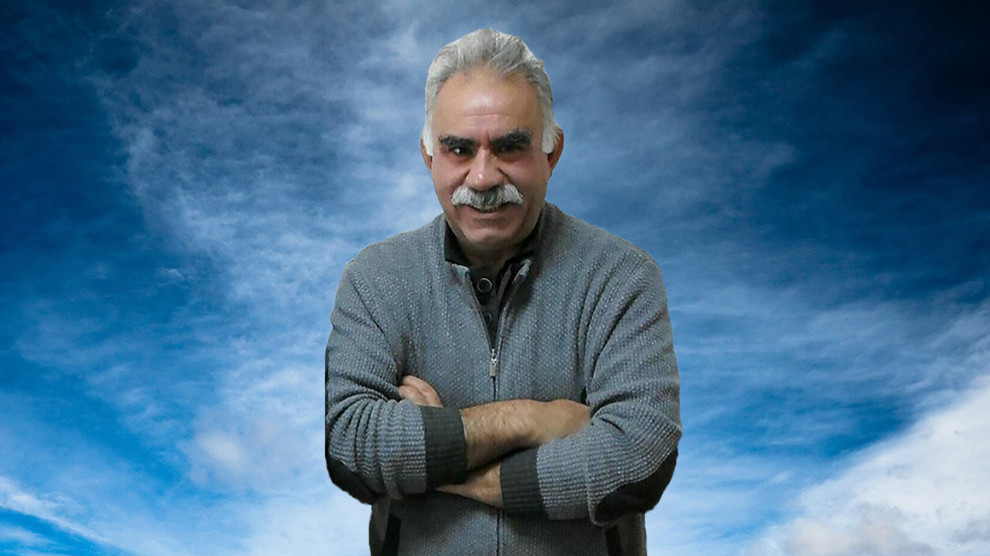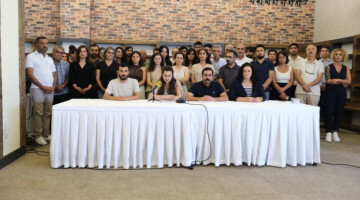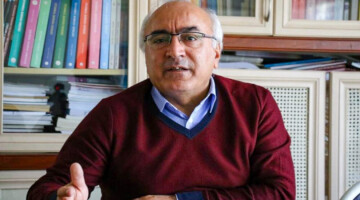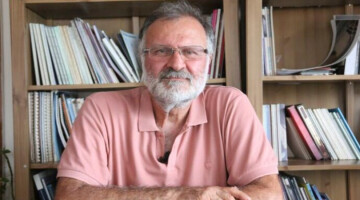The application of the Asrin Law Office for the lifting of the contact ban for its clients Abdullah Öcalan, Ömer Hayri Konar, Hamili Yıldırım and Veysi Aktaş on the Imrali prison island has been rejected by the Turkish Constitutional Court. The court sees no serious danger for the life of the applicants. The Asrin Law Office has thereupon filed an urgent application to the European Court of Human Rights (ECtHR).
Asrin Law Office, which has legally represented Abdullah Öcalan since his deportation to Turkey in 1999, announced in a statement on Twitter, that the ban on communication for its clients on Imrali since the breakout of the Coronavirus pandemic is a cause for even greater concern. All requests to guarantee the necessary preventive measures and appropriate communication facilities have been rejected. As a result, the law office turned to the Constitutional Court on 19 June. This application was also rejected on 22 July. Since the appeals in Turkey have thus been exhausted, the team of lawyers has gone to the ECtHR.
Asrin Law Office refers to an ECtHR decision of 2014, which condemned Turkey for violating the prohibition of torture as laid down in the European Convention on Human Rights in relation to the conditions of Imrali.
"This ruling documents that the system of isolation applied at Imrali for 21 years constitutes torture," the Asrin Law Office said in its statement published today. Due to the poor prison conditions, the long period of detention, the age and existing chronic illnesses of its clients, their state of health must be continuously monitored and communication must be made possible, demands the Law Office.
The isolation on Imrali has been aggravated in the past with alleged problems with the coaster used for crossing to the island, adverse weather conditions or state of emergency decrees, the Law Office said.
"In the last two years, the isolation has been aggravated by disciplinary sanctions that are automatically updated at regular intervals. The imposition of these disciplinary sanctions is arbitrary and legally incomprehensible. Both the World Health Organisation (WHO) and the Council of Europe's Committee for the Prevention of Torture (CPT) have issued statements of principle on the prison issue in the Coronavirus pandemic. The Turkish Ministry of Justice has also adopted a package of measures on the prison system. However, these principles and decisions are not being implemented in Imrali prison. Only on April 27, 2020, public pressure forced a twenty-minute telephone call with relatives for the first time and once only. During this conversation, Mr Ocalan said: 'At the moment we are doing well, but I don't know what will happen later’. In doing so, he pointed out possible risks. No further communication has been authorised since that day," the team of lawyers announced.
The Asrin Law Office described the isolation system on Imrali as a prototype for Turkey's legal and political system. The last lawyers’ visit to Abdullah Öcalan took place on August 7, 2019. The other three detainees have never been able to talk to their lawyers since their transfer to Imrali five years ago.
"This fact does not only concern Imrali, it is also about the struggle for human rights, a democratic legal system and democratic politics in Turkey. As long as the lawlessness and arbitrariness on Imrali is not stopped, it cannot be stopped in other places either", the Asrin statement said.














